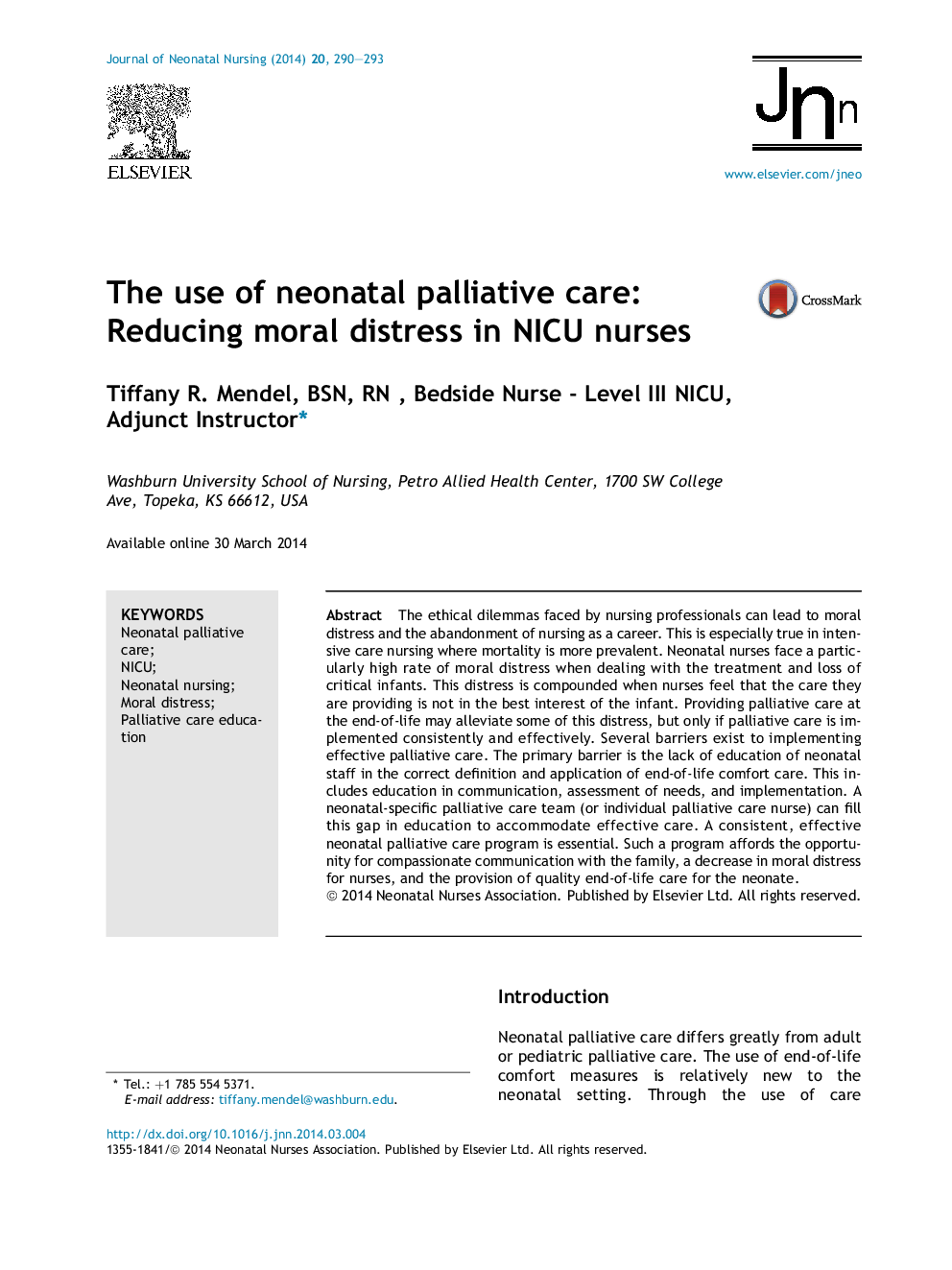| Article ID | Journal | Published Year | Pages | File Type |
|---|---|---|---|---|
| 2631416 | Journal of Neonatal Nursing | 2014 | 4 Pages |
The ethical dilemmas faced by nursing professionals can lead to moral distress and the abandonment of nursing as a career. This is especially true in intensive care nursing where mortality is more prevalent. Neonatal nurses face a particularly high rate of moral distress when dealing with the treatment and loss of critical infants. This distress is compounded when nurses feel that the care they are providing is not in the best interest of the infant. Providing palliative care at the end-of-life may alleviate some of this distress, but only if palliative care is implemented consistently and effectively. Several barriers exist to implementing effective palliative care. The primary barrier is the lack of education of neonatal staff in the correct definition and application of end-of-life comfort care. This includes education in communication, assessment of needs, and implementation. A neonatal-specific palliative care team (or individual palliative care nurse) can fill this gap in education to accommodate effective care. A consistent, effective neonatal palliative care program is essential. Such a program affords the opportunity for compassionate communication with the family, a decrease in moral distress for nurses, and the provision of quality end-of-life care for the neonate.
